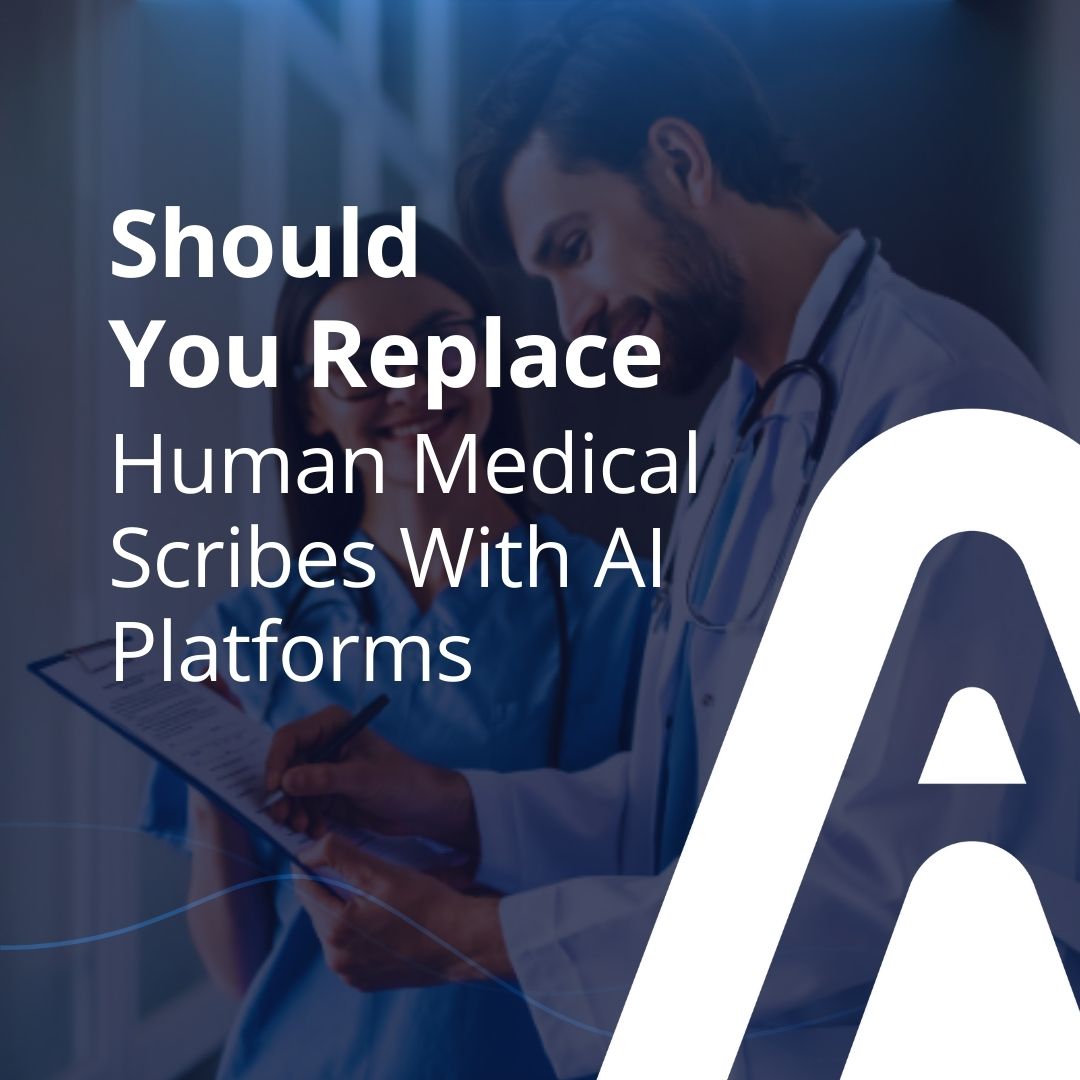Medical scribes have long been vital in healthcare. They help by:
This allows doctors to focus on patient care.
Now, AI is changing the game. New platforms can:
AI offers a promising alternative to human scribes, with benefits like improved efficiency, accuracy, and cost savings.
This page explores the challenges of using human scribes and how AI platforms are becoming a powerful solution for modern clinics.

Here are some reasons why you should consider AI platforms for medical transcriptions over humans:
.webp)
The challenges of human scribes
Human medical scribes can be valuable team members, but they come with limitations that can impact workflow and clinic efficiency. High labour costs and staff turnover create financial and operational strain, while fatigue or distractions can lead to errors in critical patient documentation. Availability is often limited during peak hours or after-hours consultations, and consistent performance relies on ongoing training and supervision. These challenges mean that even skilled scribes may not fully alleviate the administrative pressures doctors face, leaving clinics looking for a more reliable and scalable solution.
.webp)
AI platforms improve documentation
AI platforms for medical transcription are designed to address the challenges human scribes face by capturing physician-patient interactions in real time. Using advanced natural language processing, these systems convert spoken conversations into structured, accurate notes, complete with proper terminology. They integrate seamlessly with existing EMR systems, keeping records organised and accessible, while continuous learning algorithms allow the platform to improve over time. This means documentation becomes faster, more consistent, and less prone to human error, all while supporting the natural flow of consultations.
.webp)
The benefits for clinics and practitioners
Adopting an AI platform can significantly boost physician productivity and reduce burnout by minimising the need for manual note-taking. Patients benefit from shorter wait times and more attentive consultations, improving overall experience and satisfaction. Operational costs drop as reliance on full-time scribes diminishes, and clinics can ensure compliance with data security and privacy regulations. By freeing up time and resources, healthcare providers can focus more on patient care while maintaining accurate, up-to-date records that are ready for review, sharing, or reporting. It also supports easier clinic scaling.
.webp)
These platforms future-proof your practice
AI medical transcription solutions are scalable and adaptable, making them suitable for clinics of all sizes and specialities. They support in-person, telehealth, and hybrid consultations, allowing practices to embrace modern healthcare delivery methods without compromising documentation quality. These platforms also make it easier to adopt emerging healthcare technologies, helping clinics stay ahead of the curve. By incorporating an AI platform into daily workflows, healthcare providers can build a digitally advanced, sustainable practice that balances efficiency, patient care, and staff wellbeing for the long term.
Have a question?